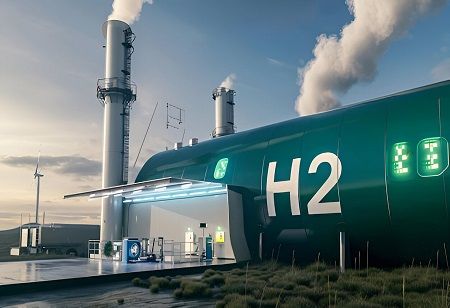
- Toyota and Shudao to invest ¥1 billion ($124M) in Chengdu plant for hydrogen fuel cells.
- Facility to support trucks, buses, and municipal vehicles; operations start by year-end.
- Chengdu is chosen for low-cost hydrogen, green energy, and local policy support.
Toyota is committing more resources to China's hydrogen future, revealing a new joint venture with the Chinese conglomerate Shudao Investment Group to establish a significant hydrogen fuel cell manufacturing facility in Chengdu, Sichuan Province.
The "Shudao Toyota Hydrogen Fuel Cell Smart Manufacturing Base" intends to establish itself as the leading hydrogen center for commercial vehicle use in the area, with a total investment of 1 billion yuan (around 20 billion yen or $124 million).
During the 2025 “Invest Chengdu” Global Investment Attraction Conference, Akita Takashi, Senior Executive VP of Toyota Motor (China) Investment, highlighted the significance of the company’s enduring partnership with Sichuan Province, pointing out that its inaugural China plant was established there in 1998. “Akita mentioned that they aspire to maintain the trust-based relationship established and grow their business collaboratively.”
Also Read: Kazakhstan Plans Green Hydrogen Pilot in Key Oil Region
The new initiative has been contracted and set to be operational by the end of the year, and it will manufacture hydrogen fuel cell systems, FC stacks, and vital components to assist various commercial vehicles, such as large trucks, dump trucks, buses, and municipal sanitation vehicles. It will unify R&D, manufacturing, sales, and service functions in a single location, coinciding with Toyota's broader strategic aim to “actively contribute to China's 'double carbon' goal of reducing carbon dioxide (CO2) emissions and achieving net-zero emissions.”
Important reasons for selecting Chengdu are its capacity to provide cost-effective hydrogen gas, its abundant green energy sources, and the developing Chengdu-Chongqing Hydrogen Corridor, anticipated to boost demand for hydrogen-fueled transportation. Assistance and incentives from local government, such as reduced highway tolls for fuel cell vehicles, were instrumental in finalizing the agreement.
Toyota, which led the way in mainstream hydrogen mobility with the 2014 introduction of the Mirai, has been steadily increasing its involvement in China's hydrogen sector. The new joint venture expands an increasing portfolio that features earlier partnerships, such as United Fuel Cell System R&D (Beijing) and Huafeng Fuel Cell Co., Ltd., established between 2020 and 2021. Through this recent pledge, Toyota solidifies its goal to be a key participant in the development of China’s hydrogen supply chain.

